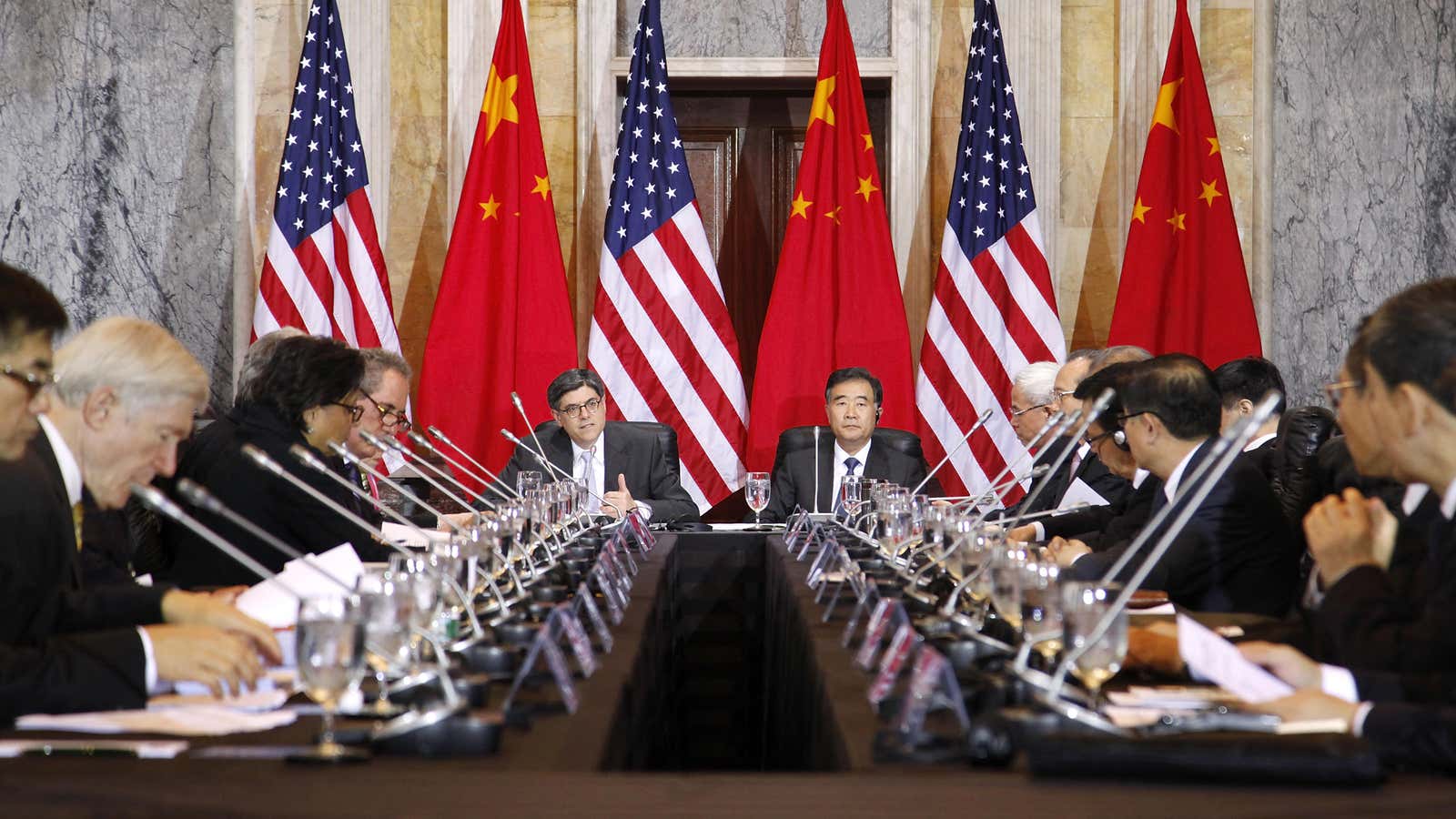There’s no longer doubt that the US government spies on foreign multinational corporations as well as governments, thanks to the disclosures by former National Security Agency contractor turned international fugitive Edward Snowden. The NSA vacuums up mountains of classified information from a rich array of sources. The CIA assists by launching digital “black bag” operations aimed at manually penetrating the computer systems of some of the world’s largest foreign multinationals.
Washington isn’t alone, of course; dozens of other governments do the same, in collaboration with each other and individually. But one thing that US officials insist they won’t do is use the information gleaned from industrial espionage to help US corporations, like the Chinese do with their state-run defense, oil and other companies.
Is it really possible that US government spies surreptitiously collect confidential information from foreign multinationals and don’t share it with domestic US business interests to give them a leg up? And why would it collect the information if not for such purposes?
Here are some reasons:
National security. US intel agencies acutely focus on foreign companies, especially defense, technology and telecommunications firms, to gauge what kind of threat they might pose to US interests. That includes finding out what kind of products they are developing, who they’re selling them to and what kind of strategic plans they have. This is particularly the case with weapons manufacturers and those making dual-use products that can be used to build nuclear weapons programs. It’s also done when such companies, like China’s telecommunications firm Huawei, seek to buy US companies. The information is used to help the Commerce Department and secretive Committee on Foreign Investment in the United States assess whether or not the US should object to such sales as being against US national security interests.
Competition. Sometimes the US spies on foreign companies to see what they’ve been getting via industrial espionage, either from their own efforts or from state-run intelligence-gathering. Efforts to uncover what Chinese firms have been getting is a full-time job in and of itself. A year after the 1996 Economic Espionage Act was passed, US authorities had already estimated that intellectual property theft was costing US firms $300 billion. Coincidentally, the same number was used earlier this year by the Commission on the Theft of International Property. US intel officials say at least 23 countries actively target US companies. Besides China, France has long been one of the worst offenders, for years targeting dozens of big US corporations, and placing intel agents in “deep cover” as corporate officials without revealing their true allegiance. US spying, in turn, has been used to root out such people and to do damage control in each of those countries. (Sometimes those efforts backfired, such as in the mid-1990s when US intelligence agents were expelled from France and from Germany, prompting at least a temporary scale-back in US commercial espionage efforts overseas).
Trade. Increasingly, US industrial espionage operations also provide Washington with key information about the capabilities and plans of foreign multinationals to be used in trade negotiations. The information isn’t shared with the US corporations (not as a matter of policy, anyway). But it is used, at least indirectly, to inform the negotiations, and give the US leverage based on having knowledge of what kind of bargaining position the other country is in, former intel officials told Quartz.
Anti-corruption. Intel officials, including former CIA director R. James Woolsey, say the US and its allies spy on foreign companies to gather evidence used to prosecute foreigners for flouting the US Foreign Corrupt Practices Act and gaining an unfair advantage over their US competitors. Back in 2000, Woolsey told reporters that the US spied on European companies Thomson-CSF (now Thales Group) and Airbus to see if they, respectively, had been paying bribes to the Brazilian and Saudi governments “That’s right, my continental friends,” Woolsey said, “we have spied on you because you bribe.” The information is also given to the Departments of State and Commerce so they can confront the other countries to take corrective action.
From time to time, concerns have arisen that US companies have benefitted from such spying. US officials insist it isn’t done, at least not intentionally. For one thing, there are too many potential complications, including which of various competing companies would get the valuable information, and what they would be allowed to do with it. Also, it’s illegal to disseminate the highly classified information to people not authorized to receive it, and few, if any, private sector executives have the necessary security clearances.
Those concerns about whether the US engages in industrial espionage arose again last week, after president Obama confirmed Snowden’s assertions that the US spies on its allies. A senior administration official was asked at the end of the two-day US-China security and economy summit in Washington whether the US government was any better than China when it comes to industrial espionage, and whether the White House pressed Beijing on the issue. “All I’ll say is we were exceptionally clear, as the president has been, that there is a vast distinction between intelligence-gathering activities that all countries do and the theft of intellectual property for the benefit of businesses in the country, which we don’t do and we don’t think any country should do,” the official said.
